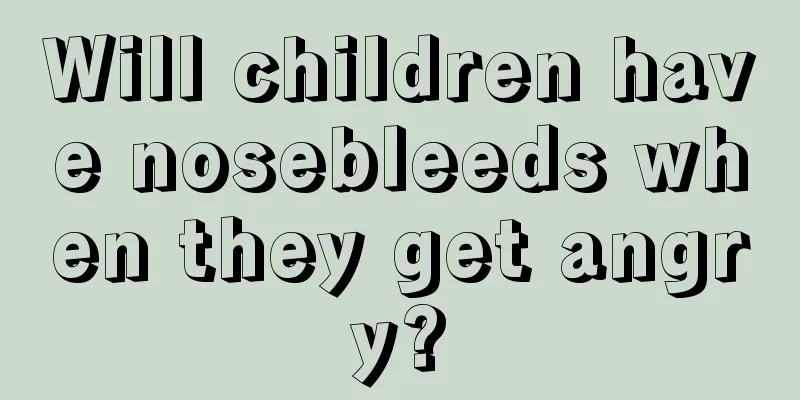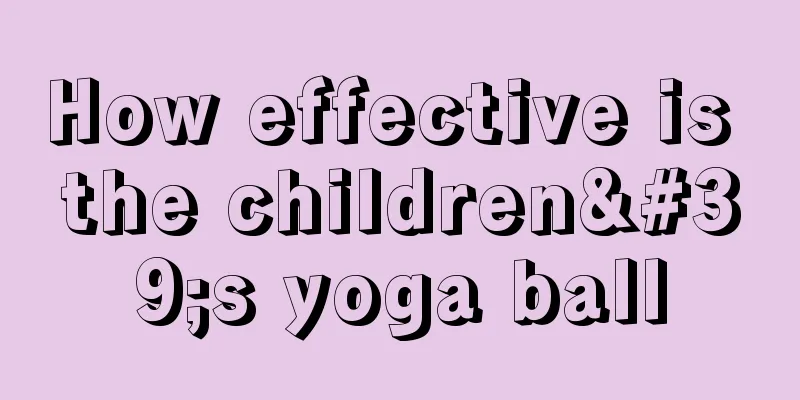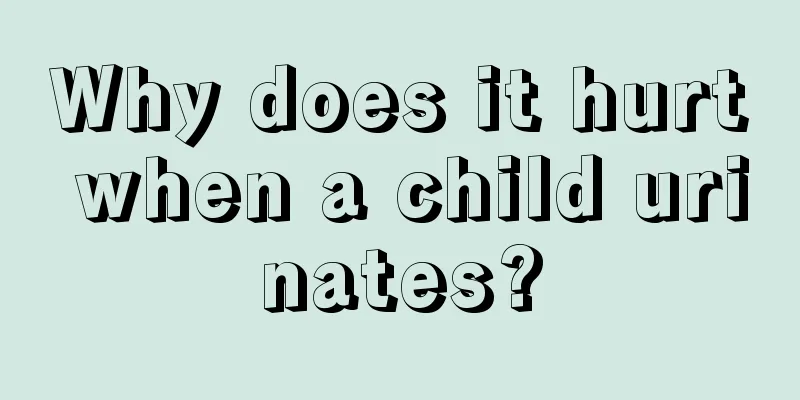Will children have nosebleeds when they get angry?

|
Summer is the season when people are most likely to get angry. In addition, in autumn, the weather in many places is also very hot and humid, so it is also easy to get angry. In addition to weather reasons, improper diet is also an important cause of getting angry. In comparison, children are more likely to get angry. Children's getting angry may indeed cause nosebleeds, but there are many reasons for nosebleeds, and getting angry is just one of many reasons. Will children have nosebleeds when they get angry? The main causes of nosebleeds in children are: 1. Nosebleeds are prone to occur when the nasal mucosa is dry, the capillaries are dilated, there is nasal inflammation or irritation, such as various rhinitis, sinusitis, nasal tuberculosis, nasal syphilis, nasal trauma, deviated nasal septum, nasal foreign bodies or nasal tumors. 2. Poor climatic conditions, such as dry air, heat, low air pressure, cold weather, and high room temperature can cause nosebleeds. 3. Some children have the bad habit of picking their noses with their hands. When the nasal mucosa is dry, it is easy to pick their noses and cause bleeding. 4. Bad habits such as being picky about food, eating a partial diet, and not eating vegetables can also cause nosebleeds due to vitamin deficiency. 5. External injury is a major cause of nosebleeds in children. Children are active and naughty, and may accidentally bump into hard objects, which may cause nosebleeds. Also, children should be educated not to pick their noses casually, as picking their noses may damage the nasal mucosa, leading to nosebleeds. 6. Nasal mucosal erosion, nasal septum deviation, etc. This is the most common cause. It is recommended to go to the ENT department for examination and diagnosis. How to deal with nosebleeds in children? Nosebleeds in children are an emergency and should be stopped promptly if they occur. A simple method is to plug the bleeding nostril with a sterilized cotton ball or pinch both nostrils with your thumb and index finger; you can also press the affected nostril with your index finger for 5-10 minutes to stop the bleeding. At this time, you should try to keep your child quiet and avoid crying. It is best to let the child sit with his head slightly tilted forward, and try to spit out the blood swallowed from the nasopharynx into the mouth. This will not only let you know the amount of bleeding but also avoid swallowing the nosebleed into the stomach, which will irritate the stomach and cause abdominal pain and vomiting. If the amount of bleeding is large and there are precursor symptoms of hemorrhagic shock such as pale complexion, sweating, rapid heart rate, and poor spirits, the patient should be placed in a semi-recumbent position and sent to the hospital for treatment as soon as possible. When treating in the hospital, the doctor will give appropriate treatment based on the location of the nose and the amount of blood. Nosebleeds in children often occur in the "Li's area" in the front third of the nasal septum, which is rich in blood vessels. If bleeding occurs repeatedly, local treatment with freezing, microwaves and chemical drugs can be used. For smaller amounts of nosebleeds, you can also use nasal drops containing 1% ephedrine to stop the bleeding by constricting the blood vessels. |
<<: Why is my daughter having a nosebleed?
>>: Why does my child always have nosebleeds?
Recommend
Treatment for baby's fever every afternoon
I wonder if your children often have a fever ever...
Children always bite their nails
Some children have the habit of always biting the...
What to do if your 13-month-old baby has short sleep time
A 13-month-old baby is already a big kid compared...
Is it effective to apply sesame oil to baby’s eczema?
The baby's skin is very delicate. If it is sl...
What are the ways to make little girls grow taller?
Many little girls have reached a certain age, but...
Why are my baby's labia black?
Generally speaking, a woman's labia will grad...
What are the symptoms of a child with low IQ?
As parents, we all hope that our children are sma...
When caring for your baby’s private parts, pay attention to these details!
There are many things to pay attention to in the ...
Neonatal breast enlargement
Anyone who has been a parent knows that in the fi...
What is the baby's development standard at 6 months of pregnancy?
For a pregnant mother who is 6 months pregnant, i...
Should children be covered with blankets when they have a fever?
Fever is a normal reaction of our body. It often ...
How to deal with burns and blisters in children?
Burns are closely related to friends who are enga...
How to make baby beef puree
The best complementary food for infants and young...
Why do children suck their fingers?
Parents with babies all know that babies make a l...
Can children eat yam when they have a cough?
Yam is a food ingredient suitable for all ages. I...









